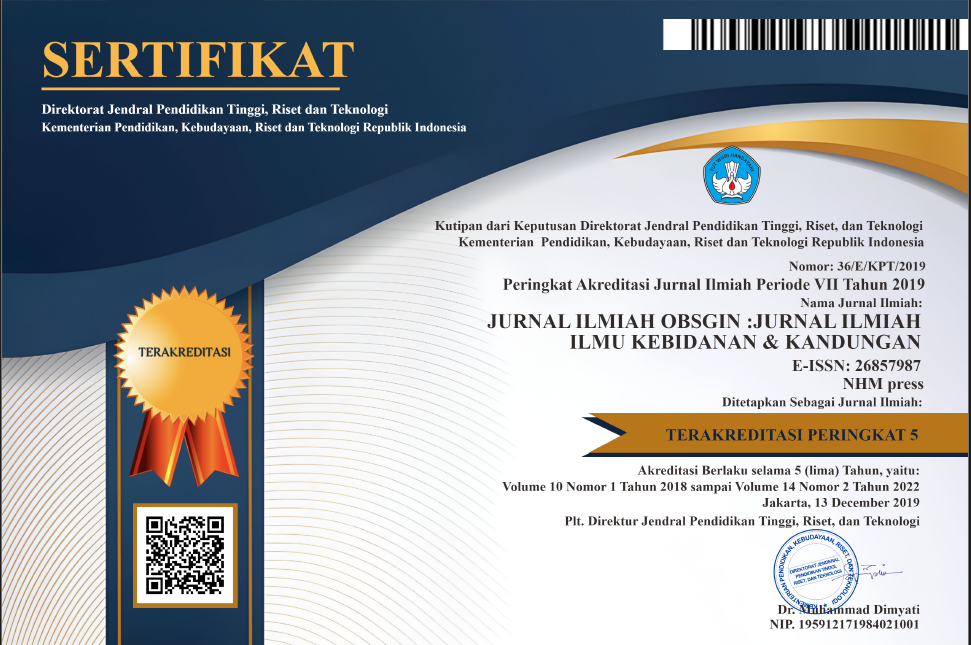PENGARUH PEMBERIAN SARI BUAH BIT TERHADAP KADAR HEMOGLOBIN REMAJA PUTRI DI SMP NEGERI 48 KABUPATEN MUARO JAMBI
Abstract
Malnutrition is the cause of anemia which reaches a percentage of around 85.5% which is characterized by impaired hemoglobin synthesis. In Indonesia, many teenagers do not get used to eating breakfast and do not consume foods that contain nutrients up to 50%, One way to overcome anemia in adolescents can be done by consuming beet juice. This research is a pre-experimental one group pre test post test study which was conducted to determine the effect of giving beet juice on the hemoglobin levels of adolescent girls at SMP Negeri 48 Muaro Jambi Regency in 2024. This research was conducted at SMP Negeri 48 Muaro Jambi Regency in January - June 2024. The research population was all 78 young women at SMP Negeri 48 Muaro Jambi Regency with a sample of 44 people. The sampling technique was purposive sampling technique. The test used in this research was the Wilcoxon test. The results of the research showed that the average hemoglobin level of adolescent girls before consuming beetroot juice was 10.59 gr/dl, the average hemoglobin level of adolescent girls after consuming beetroot juice was 11.85 gr/dl. There is an effect of consuming beetroot juice on hemoglobin levels in young women with ρ value = 0.000 (ρ<0.05). Beetroot juice has an effect on reducing hemoglobin levels in adolescent girls. It is hoped that health officials can provide health education regarding the administration of beetroot juice to increase hemoglobin levels.











